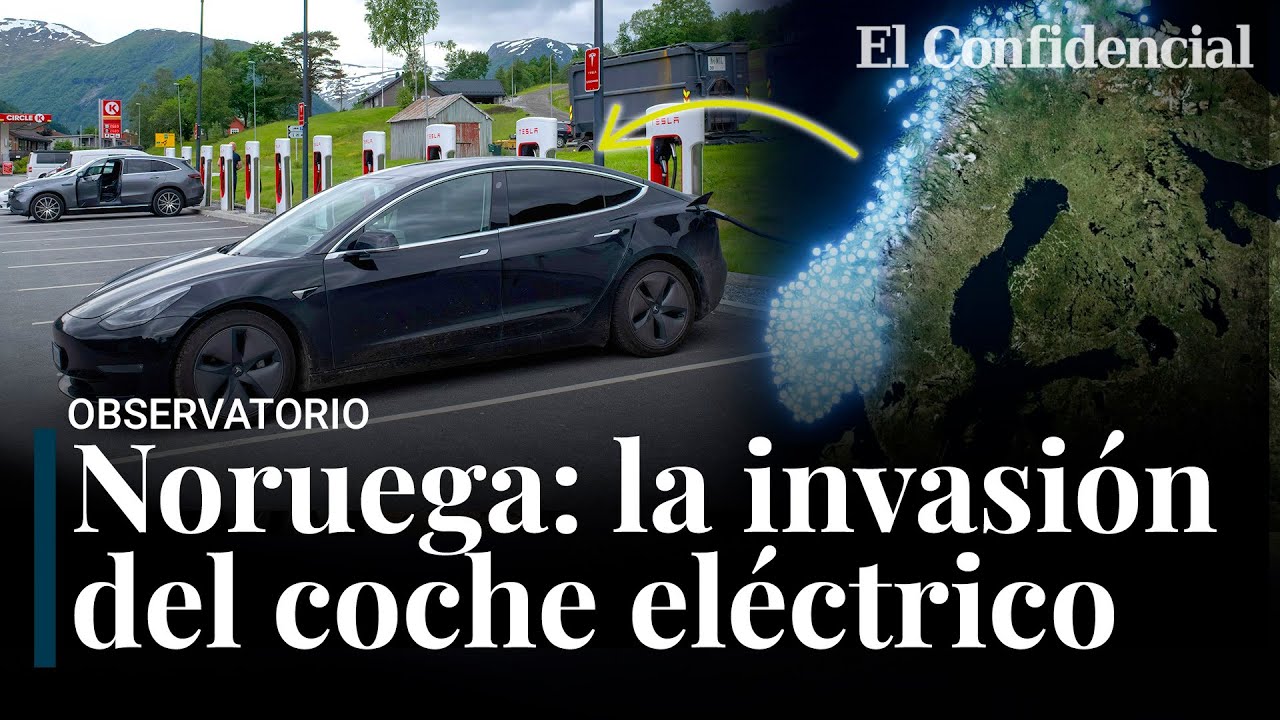EVs Are A Scam? | Business case study
Summary
TLDRThis video script addresses the harsh realities behind the electric vehicle (EV) industry, highlighting the exploitation of African workers for raw materials and China's dominance in EV production. It challenges the perception of EVs as purely eco-friendly, pointing out the environmental and social costs of their manufacturing. The script also discusses the current limitations of EVs, such as high costs, range anxiety, and a lack of skilled technicians, while urging a more sustainable and ethical approach to combating climate change.
Takeaways
- 🌏 The video discusses incidents of mistreatment of African workers by Chinese businessmen, suggesting a form of modern-day colonization.
- 🚗 The demand for Electric Vehicles (EVs) is linked to environmental and social issues, particularly concerning the extraction of raw materials in Africa.
- 🔋 EVs currently rely heavily on non-renewable energy sources for charging, with a significant portion of global electricity coming from coal, oil, and gas.
- 📈 There's a rapid growth in EV sales worldwide, with predictions suggesting a substantial market share increase by 2050.
- ⚡ The script argues that EVs emit a considerable amount of carbon during manufacturing, sometimes equivalent to 25% of the lifetime emissions of traditional cars.
- 💰 The high cost of EVs and the associated issues like range anxiety and lack of skilled technicians are challenges faced by EV owners.
- 🇨🇳 China dominates the EV market, controlling significant steps in the EV ecosystem, from raw material supply to battery manufacturing.
- 🌱 Despite the push for EVs as an environmental solution, the script highlights that renewable energy sources need further development to reduce the carbon footprint of EVs.
- 🔄 The recycling rate of EV batteries is low, with a majority ending up in landfills, contributing to environmental pollution.
- 🛠️ The mining of rare earth metals for EV batteries is associated with severe environmental pollution and human rights abuses.
- 🌱 The video concludes that while EVs are promoted as environmentally friendly, their current form does not significantly contribute to fighting climate change and may even exacerbate certain environmental and social issues.
Q & A
为什么中国在非洲的工人遭受虐待的事件会引起广泛关注?
-中国在非洲的工人遭受虐待的事件引起了广泛关注,因为这些事件违背了基本的人权和劳动标准,同时也反映了全球供应链中存在的不平等和权力滥用问题。这些事件通常通过社交媒体迅速传播,引起了公众的愤慨和对跨国公司责任的质疑。
中国政府对于在非洲的中国企业和工人有哪些指导原则?
-中国政府鼓励其企业和工人在海外遵守当地法律和国际规范,尊重当地文化和习俗,并促进互利共赢的合作关系。中国政府也强调了对违法行为的零容忍态度,并要求中国企业和公民在海外遵守当地法律法规。[^11^]
非洲国家如何回应中国工人在非洲遭受的不公平对待?
-非洲国家通过外交途径向中国表达了对不公平对待的严重关切,并要求中国政府采取措施保护非洲工人的权益。一些非洲国家还公开谴责了这种行为,并要求进行公正的调查和惩罚。[^6^]
为什么非洲工人在为中国公司工作时可能会面临风险?
-非洲工人可能会在中国公司工作时面临风险,因为一些中国企业可能存在对当地劳动法和人权的忽视,以及对工人的不公平对待和恶劣的工作条件。此外,文化和语言差异也可能导致误解和管理上的冲突。[^14^]
中国在非洲的投资对非洲工人的工作和生活条件有何影响?
-中国在非洲的投资为当地社区创造了就业机会,有助于经济发展。然而,也有报告指出,这些工作往往是低质量的,因为存在低薪、恶劣的生活和工作条件以及缺乏社会福利。[^14^]
中国企业在非洲的经营活动是否受到了当地社区的欢迎?
-中国企业在非洲的经营活动受到了不同的反应。一方面,它们为当地提供了就业机会和基础设施建设,另一方面,也有批评声音指出中国企业可能未能充分尊重当地文化和劳工权益,导致了一些社会和环境问题。[^13^]
中国政府如何回应非洲工人在中国遭受的不公平对待的指控?
-中国政府对此类指控表示严重关切,并强调中国对所有种族和国籍的人都采取平等和公正的态度。中国政府也呼吁中国企业和公民在海外遵守当地法律,尊重当地文化,并与当地社区建立良好的关系。[^11^]
为什么中国公司在非洲的业务扩张会引起争议?
-中国公司在非洲的业务扩张引起争议的原因包括对当地环境和社区的影响、劳工权益问题、以及对资源的控制等。此外,一些中国企业被指控在非洲从事不公平的商业行为,如不尊重当地劳工法和人权。[^13^]
中国企业在非洲的经营中存在哪些常见的问题?
-中国企业在非洲的经营中存在的常见问题包括对工会的敌对态度、违反工人权利、恶劣的工作条件以及歧视和不公平的劳动实践。[^14^]
中国企业在非洲的经营活动如何影响当地的社会和经济?
-中国企业在非洲的经营活动对当地社会和经济有着复杂的影响。一方面,它们通过基础设施建设和就业机会促进了经济发展;另一方面,也存在对当地环境的破坏、劳工权益的忽视以及对资源的过度开采等问题。[^13^]
Outlines

This section is available to paid users only. Please upgrade to access this part.
Upgrade NowMindmap

This section is available to paid users only. Please upgrade to access this part.
Upgrade NowKeywords

This section is available to paid users only. Please upgrade to access this part.
Upgrade NowHighlights

This section is available to paid users only. Please upgrade to access this part.
Upgrade NowTranscripts

This section is available to paid users only. Please upgrade to access this part.
Upgrade NowBrowse More Related Video

Is India Winning or Losing the Electric War?: Business Case Study

The Impact of China’s EV Boom, Explained | WSJ

O que está por trás da INVASÃO dos carros elétricos chineses?

African governments welcome Chinese electric vehicle imports, production amid looming trade war

An Analysis of China’s EV Industry Using Porter’s Diamond Model | From A Business Professor

Para saber cómo es el futuro del coche eléctrico solo hay que mirar a Noruega
5.0 / 5 (0 votes)